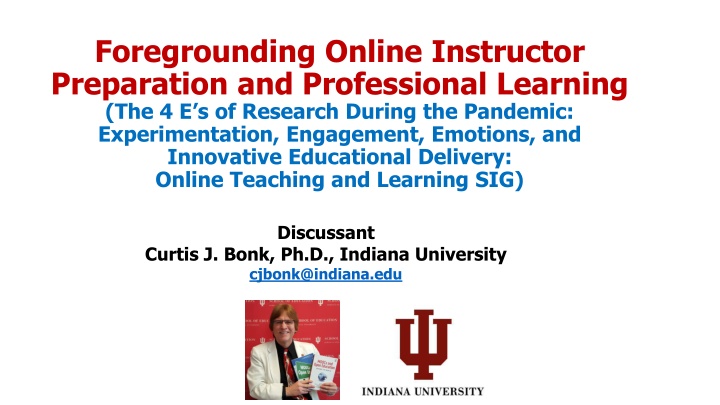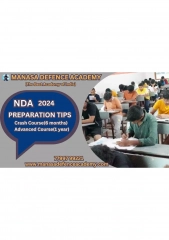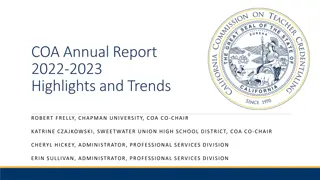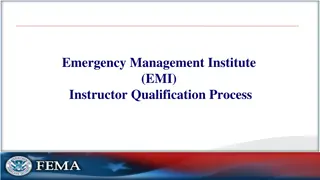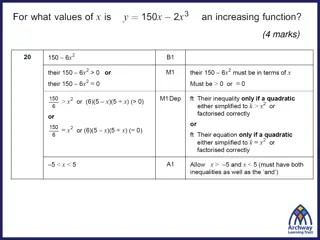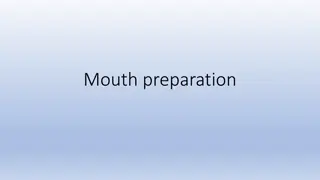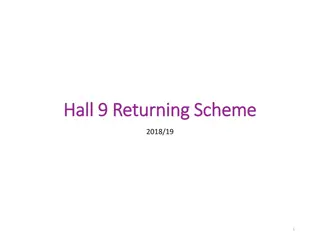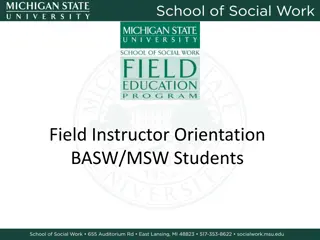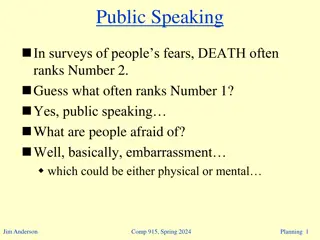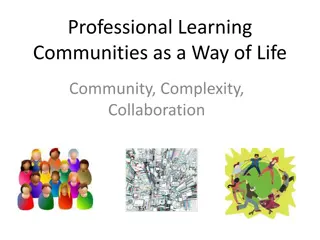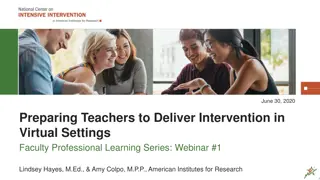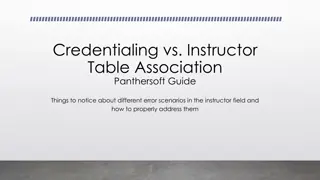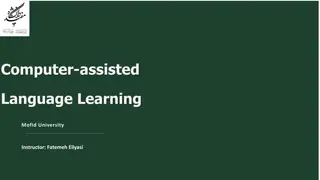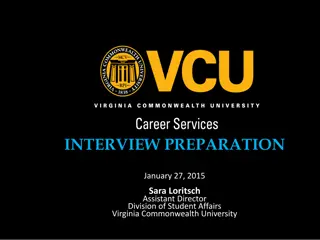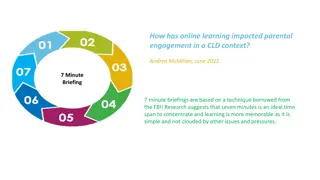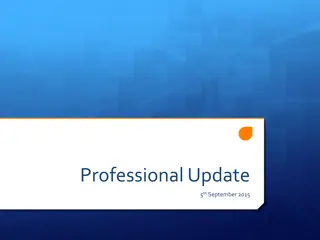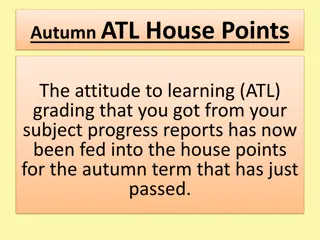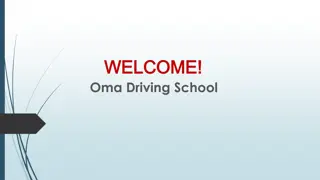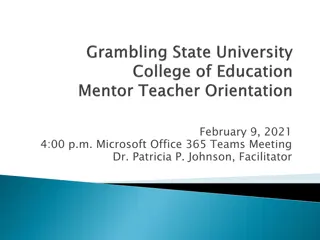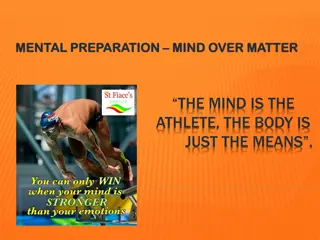Online Instructor Preparation and Professional Learning: Key Points Overview
In this presentation, Dr. Curtis J. Bonk from Indiana University discusses key points related to online instructor preparation and professional learning during the pandemic. The key points cover areas such as global education, self-directed learning, new learning environments, emotional support for teachers, and the importance of engagement in online teaching and learning. Various tools and frameworks are highlighted to enhance online teaching practices.
Download Presentation

Please find below an Image/Link to download the presentation.
The content on the website is provided AS IS for your information and personal use only. It may not be sold, licensed, or shared on other websites without obtaining consent from the author.If you encounter any issues during the download, it is possible that the publisher has removed the file from their server.
You are allowed to download the files provided on this website for personal or commercial use, subject to the condition that they are used lawfully. All files are the property of their respective owners.
The content on the website is provided AS IS for your information and personal use only. It may not be sold, licensed, or shared on other websites without obtaining consent from the author.
E N D
Presentation Transcript
Foregrounding Online Instructor Preparation and Professional Learning (The 4 E s of Research During the Pandemic: Experimentation, Engagement, Emotions, and Innovative Educational Delivery: Online Teaching and Learning SIG) Discussant Curtis J. Bonk, Ph.D., Indiana University cjbonk@indiana.edu
Key Points: General All: There are millions of teachers taking on new roles and we need to understand what happened and what works. GMU (and all): And there is a ton of data at your fingertips GMU: Data is out there awaiting your interesting questions GMU: There is a need for additional research on global education and self-directed learning. GMU: Need to team up for economies of scale. Assemble a team which is interested and motivated in your topic and has expertise.
Key Points: General Enilda and Nadia (Tampa and OSU): Don t wait until AERA to finish your papers; if possible, submit before the conference. GMU: New learning environments such as MOOC camps. You need to publish a paper on MOOC camp structures. Smart: Build on the shoulders of giants (motivation and self-efficacy: Bandura, Ames, Wigfield, Ormrod, Pintrich, Eccles, etc.) (technology: Richardson, Truman-Davis, Picciano, Seaman, etc.)
Key Points: Instruments Smart. For rapid info, use or modify existing schemes and instruments (e.g., the Online Teaching Motivation Scale) COVID Team: Metacognitive Technological Pedagogical Content Knowledge (M-PACK) GMU: Academic Community of Engagement (ACE) Framework from Jered Borup
Key Points: Emotional Smart (and Tampa and OSU): Teachers must be supported by administration and institutional support. McGill: Effective teaching involves and wide range of emotions. Life is full of emotions, but perhaps no time like now. COVID Team: Fatigue, anxiety, stress, sitting all day physical pain (there is a need for flexibility, need to share practices, student centered where and when possible. McGill: Emotional experiences during the pandemic need to be better understood: What did we do? What do we do now? Will it continue into the future?
Key Points: Engagement GSU (and others): What is engagement and how can we measure it? Whether it is affective, behavioral, or cognitive. GSU (and others): The increasing focus on the affective side; the psycho-social emotional needs. GSU (and others): Teachers needs skills in affective engagement like developing relationships, facilitating communication, and instilling excitement for learning.
Key Points: New Educational Training Models McGill: Should we change the way that teachers are trained? If so, how so? Tampa and OSU: We have been jump started toward transformative change or have the potential for it. Tampa and OSU: Digital pedagogy has risen in importance. Now how do we measure it and enhance it? Tampa and OSU: What are the new instructional delivery models for this digital age? Tampa and OSU: This is often not experimental nor creative pedagogy, but simply (or not so simple) adaptation to the conditions. Tampa and OSU: We are reactive creatures. How can we be trained to be more proactive?
Key Points: New Educational Models GMU: Be creative somewhere in your work (bMOOCs) GMU: Stronger communities come from the blends of virtual and FTF GMU: Loads of interesting and important language learning from MOOCs and open ed during pandemic.
Key Points: New Models GMU (and others): Need new models of educational delivery; which includes volunteers, facilitators, and informal learning.
Key Points: Need for Training Tampa and OSU (and all): Read this paper if you re an online learning trainer or a teacher and learning center staff member or director. Tampa and OSU (and all): Quick hits not extended reflections webinars, workshops, colleague advice, friends, social media searches, etc. How to extend and connect all that in a COP/COL? Tampa and OSU (and all) need create innovative and transformative learning experiences that impact instructors and students digital practices. Tampa and OSU (and all) lack of clear guidelines.
Key Points: Engaging Pedagogy and Models COVID Team (and all teams): How were pedagogical approaches impacted or affected by the pandemic? How comfortable with new models and tools? Can these practices and ideas and new models transfer to a post-pandemic age?
